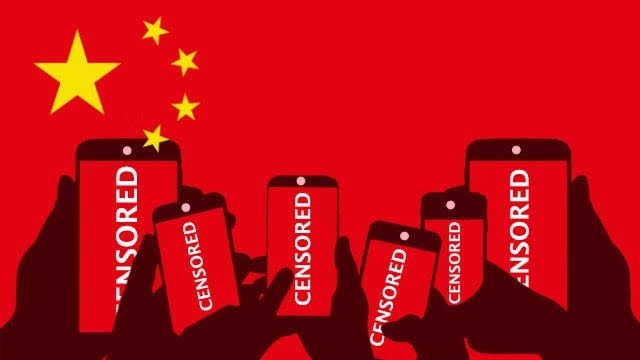The Hollow Internet of Communist China
in recent years, the Chinese communist leadership has devoted more and more resources to controlling content online. Government policies have made the internet a less vibrant political space for Chinese citizens.

The Communist Party of China operates one of the world's most extensive censorship systems over the internet, known as the Great Firewall, which has existed since 2000. Its role in internet censorship in China is to block access to selected foreign websites and to slow down cross-border internet traffic. This system has also silenced many of China’s most important voices advocating reform and opening up the internet.
Under Chinese dictator Xi Jinping, there has been a striking change in China, especially among the internet-savvy and globally connected young Chinese, who have long been most open to different worldviews. For many years, the internet in China was seen as a channel for new thinking, or at least greater openness. Chinese citizens could go online to expose government corruption and criticise leaders.
However, in recent years, the Chinese communist leadership has devoted more and more resources to controlling content online. Government policies have made the internet a less vibrant political space for Chinese citizens.
Through the years, the Communist Chinese government has been actively removing apps from Apple’s App Store. On Thursday, April 18, Meta’s WhatsApp and Threads became the latest victims as Chinese officials voiced their desire to remove them over an undisclosed security matter.
Following the directives from the Chinese Cyberspace Administration of China, Apple has removed WhatsApp and Threads from its App Store in China. The company stated, "We are obligated to follow the laws in the countries where we operate, even when we disagree."
Similarly, in 2017, Apple removed The New York Times news app, saying it violated local regulations, a move that came amid rising news censorship in the dictator-led country of China.
It is evident that China wishes to have unyielding control over the information available to its citizens, so it brings forth any change if it wants to censor or limit unwanted information from disseminating rapidly using multiple technologies. This kind of censorship has had a serious impact on Chinese society and its interaction with the rest of the world.
For instance, the backlash against the Chinese writer Fang Fang’s decision to have her diary published internationally illustrates a shift in the mindset of young Chinese citizens.
They accused Fang of failing to show the Chinese government’s success in containing the outbreak of the covid-19 and of being a tool for “anti-China forces.” This shows how the Great Firewall is not just a tool for controlling information but also a mechanism for shaping public opinions within China.
Report by
Shomen Chandra
Intern, The Narrative


